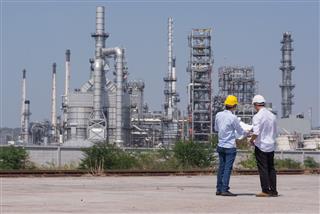
Engineering is the evergreen branch of education that will never run out of opportunities. As older ones seemingly get exhausted, new ones are born. Engineers enable the progress of mankind, simultaneously creating new avenues for themselves.
In a way, engineering is everything. And engineers are everywhere. Even art requires a form of engineering; you need the idea, then you go about constructing it, building it from the ground up. The biggest thing that separates engineering from other branches is that it is strictly utilitarian. There usually isn’t any “Because I felt like it”, or “It looks good this way” in engineering. You have a need, and you make something to fulfill that need. Since we always need something, we will always need engineers. As the boundaries of science and commerce continue to expand, they will need engineers to build stuff for them.
The four big types of engineering always stay intact, only the sub-branches change. Civil, mechanical, electrical, and chemical engineering have a vast number of sub-branches which can be applied for specific needs. Then you also have a multitude of specialization branches that take a few common rules from the major types, like mechatronics and nanoengineering. It is also possible that the knowledge of one sub-branch can be useful in another, like how an acoustics engineer can help create more silent commercial airplanes (aerospace engineering).
Mechanical is one of the two oldest known disciplines of engineering. You can’t say ‘Engineer’ without ‘Engine’, and a mechanical engineer is the one who builds them. The branch is largely about building things; you get to envision, create, and manufacture all the mechanical objects in the world.
Aerospace Engineers
This branch is all about creating, testing, and maintaining aircraft (both military and commercial) and spacecrafts. Accuracy and detail in designs is very important; a lot of issues will need to be resolved before testing even begins.
The biggest change in aerospace engineering since its inception is the requirement of prerequisite knowledge in computer programming. A lot of work involves the engineer sitting in a cubicle, coding away in CAD. The other types common to most engineering disciplines (testing and maintenance) are also available. Most testing phases include simulations, which is also where your programming skills come in handy. Further specializations include aerodynamics, propulsion and control systems.
Audio/Acoustical Engineers
They get to study sounds. Not just music, mind you – all kinds of sounds. It involves building better loudspeakers, hearing aids, studios, etc., as well as working on the sounds itself. You can be a part of the music industry as a sound engineer by building better stages, auditoriums, and halls. You can handle live sounds as a part of the crew of a touring musician. You can become technically trained to produce music in studios.
The overall job expectation of audio engineers is average. The problem with this branch is your desire to do it, especially in the music industry. You need to generate a lot of interest for it, you won’t always get decent pay or work on songs that you enjoy. It is also one of the fastest changing branches of engineering, making your basic, technical, and programming knowledge almost irrelevant 5-6 years from now.
Automotive Engineers
This category can be divided into the three common skills: design, RnD, and production. Design is of two types: conventional and innovative. Research and development often involves testing and improving automobile components and anticipating the way they work under different levels of stress.
Safety and functionality of vehicles are the two core features that provide good job opportunities, after which comes cosmetic design.
Manufacturing Engineers
Your job as a manufacturing engineer will be to handle the making of products, from raw material to the packaging of finished products. They create and enhance assembly lines, improve manufacturing efficiency and output while making the design cost-effective and safe. The study involves knowledge from other branches like physics, computer programming, dynamics, study of materials, etc.
Although manufacturing is becoming more and more automated, you can find decent earnings with a good deal of knowledge and experience. Current job expectations include quality control and redesign using improved technology.
Thermal Engineers
You need complete knowledge on thermodynamics and fluid dynamics to be a good thermal engineer. The job involves designing and improving entire systems that control and regulate the transfer of thermal energy, as well as floor expertise to solve emergency situations. From rooms with controlled temperatures to the cooling of a reactor core in a nuclear power plant, it all falls under the job description of a thermal engineer. Programming knowledge is also required as a lot of testing is now done using simulations.
Vehicle Engineers
While automotive and aerospace engineering are a part of vehicle engineering, they are broad-enough categories to be considered separate. Vehicle engineering, as a whole, includes your regular automobiles, as well as marine and aerospace vehicles. Marine engineering includes both commercial and military vessels. You will be deviating from the main branch as you enter the specialization areas, as they require knowledge from electrical and electronics.
This field is relatively new as compared to mechanical and civil, as it was created at the onset of the electric age. Then came the distinction of an electronics engineer, whose job becomes increasingly distinct from the core electrical field. The key idea in this field is to make systems more efficient. With rising levels of power consumption and declining amounts of non-renewable energy, your job as an electrical engineer will include a constantly evolving scene of design and products.
Computer Engineers
It is one of the most sought-after fields in engineering; more and more people opt for it, with companies always requiring computer engineers.
The branch is basically divided into two: hardware and software. Hardware engineers are the ones who make the computers and software engineers are the ones who compile long lines of codes in different programming languages to make use of the hardware. Both are equally important fields, with software gaining the advantage due to the ease with which you can update them. While most fields do require programming knowledge, the difference between them and an actual software engineer is that the latter works on the base machine-level code. He/she is the one who builds the code from scratch, then keeps updating it to negate bugs and improve performance.
Both hardware and software engineering can be categorized into consumer and industrial sectors. The consumer end revolves around home and office computers, i.e. PCs, laptops and tablets. The industrial end includes supercomputers, large server rooms, satellite computers, etc.
Only hardware engineering requires mathematical knowledge; software engineers start learning languages from the basics.
Power Engineers
Your main job as a power engineer is to convert energy sources into power (electricity). The biggest advantage in this branch is, since you’re not concerned with obtaining the energy source, you will always have a decent amount of job openings. And good paying ones too. Power is the biggest commodity today; the more a country can make, the more they develop. You will be working in tandem with the people fighting the energy crisis, but the main job description stays unaltered.
You will mostly get to learn and work on alternating currents, usually directly with your country’s power grid. You will be working in shifts (like a week on and a week off), so you will need to do some career and family planning beforehand. Apart from that, power engineering remains one of the biggest money-making engineering professions.
Optical Engineers
This branch requires a deep knowledge of mathematics, the properties of light, physics, along with other fields like electronics and telecommunication. Your job may range from working on disc players (CD, DVD, Blu-ray discs) to building huge telescopes and experimenting with lasers.
This is a modern branch, therefore you will have to spend a considerable amount of time in learning. The job description is a little unpredictable at first, but will be clearer as you continue to your major. It can be consumer electronics, security systems, astronomy equipment, display systems, etc.
Electronic Engineers
Chips, integrated circuits, analog and digital data transactions and a lot of other things are what you will be learning as an electronics engineer. This is another popular branch because of its utility. Everything is now electronic, and therefore electronic engineers are needed everywhere. They are needed for networking, data management, design and manufacture of both consumer and industrial chipboards, etc.
The field can branch off into robotics, visual and audio equipment (television and radio), telecommunications, and industrial control systems. You can end up designing household appliances or even create schematics for high-end research equipment.
In effect, this branch is a great combination of chemistry and various aspects of engineering. You need a deep understanding of chemicals right down from the elements to pharmaceutical products. Then you must combine this knowledge with parts of civil, mechanical, and electrical engineering and work with those engineers. Your work as a chemical engineer can be closely related to that of an environmental engineer. Other areas of specialization are in agriculture (manufacture of ammonia), food (handling, processing, packaging, preserving) and the polymer industry.
There are branches like molecular and biomolecular engineering that are so close to full courses in chemistry, that it becomes difficult to separate either one. I therefore focus on the two fields that have less to do with chemistry and more to do with engineering. So chemical engineers usually gather knowledge on a much broader scope than other branches that can have unique specializations.
Materials Engineers
Handling data is a major part of what you do as a materials engineer. Gathering data on various materials, their strength or deterioration, usefulness, testing, improving their quality and monitoring them is all a part of the job. Programming skills are required because of heavy use of both hardware and software. It will be your responsibility to assess any damage to the raw materials used, the product as well as the production line.
Being a materials engineer is a very demanding job that requires you to learn and do a lot of things. You could be working in a power plant or even alongside aerospace engineers in the aviation sector. Wherever you go, be prepared for long hours of computer work and data compiling. You either work on sites (in shifts), in hi-tech laboratories (long hours) or as a product salesman (extensive traveling).
Further specialization can lead to ceramic engineering, which deals with any use of ceramics in any product. This means you get to work with non-metallic materials, like glass, bricks or any silicon-based products (like the extensively used silicon nitride ball bearings). This ranges from ceramic kitchen knives to heat-resistant layers (or tiles) in power plants and spacecrafts, or even products in fiber-optics.
Petroleum Engineers
This is currently a very popular branch, mainly because of the earnings. There aren’t too many job openings as compared to the number of people that opt for this branch. And it is one field where the more you learn, the better you earn. So if you are interested in being a petroleum engineer, be prepared to put in a lot of time in learning.
Your job can start off at the lower levels, which includes exploration, drilling, and processing. Your pay increases a lot more once you get added responsibilities (like an administrative position).
The job is usually categorized into three types: upstream, midstream, and downstream. The upstream sector includes exploration and extraction of crude oil and natural gas. The midstream is concerned with storage, packaging, and transporting the resources. Downstream is where the raw materials are refined and distributed.
This is the second of the two oldest known disciplines of engineering. It started out with cavemen building their own caves and farms, pens for their livestock for protection from predators. Civil engineering touches every single aspect of our lives today. The homes we live in, the roads and train tracks we travel on (occasionally through tunnels), the skyscrapers we work in, the dams that provide us with water, the jogging park we go to every morning – they are all made by civil engineers. They change, build, and even preserve entire landscapes.
Environmental Engineers
If you enter this field, you get to work for a cleaner environment. The field basically involves pollution control, management of hazardous chemicals, global warming issues, and waste management. Therefore you will also need considerable knowledge in the fields of chemistry and biology. Managing water resources is also a part of being an environmental engineer.
This field can be as dicey as it is interesting. If you love the outdoors, this is a good branch to pursue. The job opportunities are decent, but the real engineering-related work usually starts at higher posts. Fresh employees can be made to travel around to pitch their company’s products.
Geomatics Engineers
This branch is closely related to geology. It has everything to do with laying a solid foundation for buildings, roads, and railway tracks, as well as disaster management and excavation. You can also record geological data, map the underground soils and construction, and survey land.
River Engineers
This is an offshoot of hydromodification, which deals with both natural and artificial changes to water bodies. River engineers get to change the course of rivers to make them more favorable in order to ensure the safety of the surrounding population.
One advantage with river engineering is that channeling rivers and streams is a long term job. Even after completing the main job of redirecting the water body, you need to maintain the consistency of the soil around the new channel. Urban channelization is usually done with concrete. Rural and minor work needs to be cared for to prevent excess erosion.
Structural Engineers
They are the ones who build the insides, or the ‘skeleton’, of any structure. Studying structural engineering requires a good deal of knowledge in geography and material strength, because the way a structure is built always depends on where it is being built. Structural engineers also need to work with architects to plan a structure first. It is your responsibility to ensure the sturdiness of anything that you build.
Testing is a huge part of structural engineering. You can be qualified for specializations like earthquake and wind engineering, where you need to check buildings, materials and stress-bearing capacities of buildings against the harsh forces of nature. Or you could become an ocean engineer who designs, builds, and tests coastal structures.
Transportation Engineers
A lot of what you do as a transportation engineer is in roadways. The other parts are railway tracks, airline services, and marine services. Of course, the vehicle part of transportation falls under mechanical engineering. You get to work on improving highways and city streets, monitor traffic schedule and provide solutions for efficient conveyance. To do this, you need a regularly updated knowledge of city planning and upcoming buildings. Your job profile may include damage assessment due to natural calamities and safety assurance of underground transports.
Air and sea transportation includes designing and constructing ports, terminals, and docks. Your part of the work will include planning out these structures according to location and traffic.
Specialized Fields
There is a non-exhaustive list of other branches that pick up a few elements from each major branch, and yet remain unique.
Agricultural Engineers
You will be learning about animal and plant biology along with chemical, mechanical, and electrical engineering. The field can be divided into agricultural machinery, research, and use of fertilizers, as well as livestock, soil, and waste management. Apart from that, there is production, packaging, and distribution.
Biological Engineers
The terms biological engineering, bioengineering, biomedical engineering, and biochemical engineering have often been used interchangeably. There isn’t too much of a difference between them at the undergraduate level. The deeper you get into specializations, the more differences you will find. For example, biomedical engineering does not always relate to organic matter, while bioengineering does not always focus on medical issues.
All in all, this field is concerned with the use of engineering concepts on biological matter. This includes prosthetics, mechanical implants like bionic eyes, cochlear implants, pacemakers and dialysis machines. Bioengineers in the medical sector are not, therefore, medical practitioners. They only focus on designing and building the equipment and implants that are used in medicine.
Biological engineering also uses nanotechnology, like creating nanoparticles that fight cancer. They can be more efficient than conventional drugs because they are ‘smart’ and can selectively destroy cancer cells.
Energy Engineers
This specialization is different from power engineering because it deals only with renewable energy sources. With mounting pressure to control the consumption of non-renewable resources, this field does provide a lot of opportunities in the research department. You get to innovate on latest technologies (like the wind lens) and improve existing machines that produce renewable energy. This field needs a deep knowledge of mechanical engineering.
Industrial Engineers
Your job as an industrial engineer is to manage systems and operations. It’s a lot closer to operations management, but requires a deep knowledge of mathematics
Mechatronics Engineers
This is an excellent example of how new technologies created the need of a new branch of engineering. Mechatronics (mechanics + electronics) is the integration of mechanical units with electronic components at complex levels. It can include making a robotic unit that takes work decisions by itself (like a robot that plays chess or makes noodles). In a basic sense, this is advanced robotics. The difference between them is that robotics is autonomous, while mechatronic is automatic. A mechatronic engineer should be highly skilled with the use of physical systems, all kinds of sensors, multiple level languages and data management.
Mechatronics is actually closer to daily life than you think. The new smart washing machines and air conditioners (that turn off when no one’s in the room), or the traffic lights that detect the movement of pedestrians and vehicles, they are all a part of mechatronic engineering.
Nanoengineers
This involves working on any technology at the nanoscale (a nanometer is one billionth of a meter). It requires extensive knowledge in mechanical and chemical engineering, like in artificial DNA manipulation.
Nuclear Engineers
This was a booming field in the 90s, but falls short in creating enough employment today. That doesn’t mean it is a dead-end career; nuclear engineering provides one of the more interesting and secure jobs around. You work with the latest technology and you’re left with tons of room for innovation. The field requires extensive amounts of research, mostly to contain and safely eliminate radioactive waste. The biggest employers in America are the NRC and the Navy. Apart from them, there are nuclear power plants, and both Government-funded and private research laboratories.
Photonic Engineers
Photonic engineering is a unique extension of optical engineering. It has anything and everything to do with light, like detection and monitoring, manipulating, processing, etc. It is finding more and more applications in modern engineering, like telecommunications, robotics, light sensors and semiconductors, information transmissions, LED displays, laser tools and medical aspects like corrective laser eye surgery.
Railway Systems Engineers
You’ll be handling all the technical aspects of the railway system. Things like designing, building and maintaining carriages and engines, inspection, lighting and power transmission will be your responsibility. You will be working is shifts and you may even have to work on bank holidays.
The list is definitely not finite. Just as we now have photonic and mechatronic engineering, more fields are bound to emerge as technology progresses. And that is the beauty of engineering, the more engineers create, the more there is to make.











